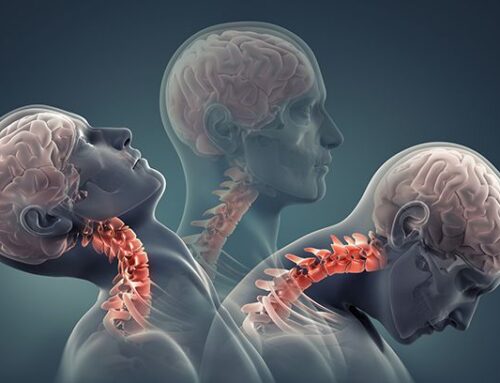Whiplash is a type of neck injury that occurs when your head is suddenly and forcefully jerked forward or backward. This can damage the soft tissue in your neck, including the muscles, tendons, and ligaments.
Symptoms of whiplash usually develop within 24 hours after the accident and can include a few like neck pain, stiffness, and more. How do you determine if you have whiplash and need to seek medical attention from a whiplash chiropractor?
How to Determine if You Have Whiplash
First and foremost, if you were in a car accident, it’s essential to seek a whiplash chiropractor right away, even if you don’t think you’re injured. People often don’t realize they have whiplash until days or weeks after the accident.
Some common signs and symptoms of whiplash include:
1. Neck pain and stiffness
Once you feel pain in your neck or it becomes difficult to move your head, these could be signs of whiplash. The difference between a crick in the neck and a whiplash is that the pain from a whiplash radiates beyond your neck. At some point, the pain might travel down your arms or cause headaches. Then it might become difficult to turn your head or look over your shoulder.
2. Loss of range of motion in the neck
If you can’t move your head as far as you could before the accident, you may have whiplash. You might also have trouble tilting your head back or to the side. In some cases, people with whiplash feel as if their head is “stuck” in one position. You’ll likely notice this loss of range of motion right away after the accident. Some days it might feel better than others.
3. Dizziness
You’ll have to be cautious if you feel dizzy after a car accident. While it’s not uncommon to have some trouble balancing yourself immediately following an accident, it could be a sign of whiplash if the dizziness lingers. Only a medical professional can determine if your dizziness is due to an inner ear injury or something else. We recommend going to a whiplash chiropractor to help you out with your current condition.
4. Headaches
Headaches can sometimes be a symptom of whiplash, but they might also signify a concussion. If you have any concerns about your headaches after an accident, it’s best to seek medical attention. Otherwise, if your headaches go away on their own and don’t seem to be getting worse, whiplash is likely the cause.
5. Fatigue
Often, people with whiplash feel tired or sleepy. This is most likely due to the pain medication you might be taking for your neck pain. But it could also be from the stress of the accident and your body’s natural healing process. You’ll also feel more tired if you have trouble sleeping because of your neck pain.
These symptoms might not all occur at once, and you might not have all of them. For example, you might only have neck pain and stiffness. Or you might only experience headaches and dizziness. The important thing is to be aware of these symptoms so you can seek medical attention from a whiplash chiropractor if necessary.
What are some good ways to avoid whiplash?
Whiplash is a neck injury when your head suddenly snaps forward or backward. It can be excruciating and may even lead to disability, then you’ll need to see a whiplash chiropractor. There are a few things you can do to help avoid whiplash, such as:
1. Wearing a seatbelt
Wearing a seatbelt when you’re in a car is one of the best ways to avoid whiplash. It helps keep your head and neck in alignment, so they’re less likely to snap forward or backward in the event of an accident. It will also help keep you from being ejected from the car, leading to more severe injuries.
2. Adjusting your headrest
When you adjust your headrest, be sure it’s high enough so that your head is in line with the top of your spine. This will help keep your neck from snapping forward or backward in an accident. You’ll also want to make sure the headrest is close enough to your head so that it can provide support. Sometimes, people don’t adjust their headrests properly and end up with whiplash anyway.
3. Paying attention to the road
Paying attention to the road can help you avoid accidents altogether. If you’re looking at your phone or fiddling with the radio, you’re not paying attention to what’s happening on the road. This increases your chances of being involved in an accident, leading to whiplash. Keep your eyes on the road and your hands on the wheel when you’re driving.
4. Taking breaks on long trips
If you’re going on a long road trip, take breaks every few hours. This will help you stay alert and refreshed to pay attention to the road. It will also help reduce your chances of getting fatigued, leading to an accident. You’ll want to get out of the car and walk around for a few minutes to stretch your legs and get your blood flowing.
5. Seeing a whiplash chiropractor regularly
Seeing a whiplash chiropractor regularly can help reduce your risk of developing whiplash. They can help keep your spine in alignment and improve your range of motion. This can help you avoid injury if you’re involved in an accident. And if you do develop whiplash, they can help you recover more quickly.
These are just a few ways to help avoid whiplash. If you’re ever involved in an accident, see a doctor right away. And if you start experiencing any of the symptoms of whiplash, be sure to let a whiplash chiropractor get it checked out. Early diagnosis and treatment are essential for a full recovery.
Call a Whiplash Chiropractor If You Have Whiplash
Nothing can beat the feeling of finally being able to move your neck again after suffering from whiplash. Whiplash is a severe condition that can take weeks or even months to recover from. And if not treated properly, it can lead to chronic pain and disability. Call our whiplash chiropractor at Peak Potential Family Chiropractic – Houston Heights today!





